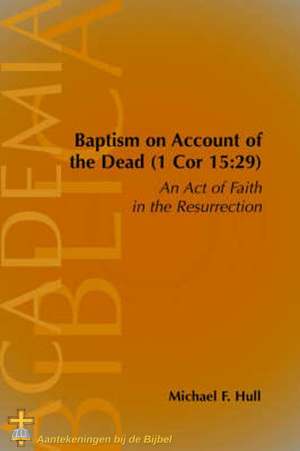
Aantekeningen bij de Bijbel
Vragen, overdenkingen en achtergronden over de Bijbel,
welke resulteren in allerlei aantekeningen.
| SV | Ik heb u met melk gevoed, en niet met [vaste] spijs; want gij vermocht [toen] nog niet; ja, gij vermoogt ook nu nog niet. |
| Steph | γαλα υμας εποτισα και ου βρωμα ουπω γαρ ηδυνασθε αλλ ουτε ετι νυν δυνασθε
|
| Trans. | gala ymas epotisa kai ou brōma oupō gar ēdynasthe all oute eti nyn dynasthe |
Algemeen
Zie ook: Fundament (Geestelijk), Kennis, Geleerd, Melk
Hebreeen 5:12, 1 Petrus 2:2
Aantekeningen
Ik heb u met melk gevoed, en niet met [vaste] spijs; want gij vermocht [toen] nog niet; ja, gij vermoogt ook nu nog niet.
- Clement, Instructor 1 34 § 3
- Clement, Instructor 1.6 - But again in summer, the body, having its pores more open, affords greater facility for diaphoretic action in the case of the food, and the milk is least abundant, since neither is the blood full, nor is the whole nutriment retained. If, then, the digestion of the food results in the production of blood, and the blood becomes milk, then blood is a preparation for milk, as blood is for a human beings, and the grape for the vine. With milk, then, the Lord's nutriment, we are nursed directly we are born; and as soon as we are regenerated, we are honoured by receiving thegood news of the hope of rest, even the Jerusalem above, in which it is written that milk and honey fall in showers, receiving through what is material the pledge of the sacred food. For meats are done away with, 1 Corinthians 6:13 as the apostle himself says; but this nourishment on milk leads to the heavens, rearing up citizens of heaven, and members of the angelic choirs. And since the Word is the gushing fountain of life, and has been called a river of olive oil, Paul, using appropriate figurative language, and calling Him milk, adds: I have given you to drink; 1 Corinthians 3:2 for we drink in the word, the nutriment of the truth. In truth, also liquid food is called drink; and the same thing may somehow be both meat and drink, according to the different aspects in which it is considered, just as cheese is the solidification of milk or milk solidified; for I am not concerned here to make a nice selection of an expression, only to say that one substance supplies both articles of food. Besides, for children at the breast, milk alone suffices; it serves both for meat and drink. I, says the Lord, have meat to eat that you know not of. My meat is to do the will of Him that sent Me. John 4:32-34 You see another kind of food which, similarly with milk, represents figuratively the will of God. Besides, also, the completion of His own passion He called catachrestically a cup, when He alone had to drink and drain it. Thus to Christ the fulfilling of His Father's will was food; and to us infants, who drink the milk of the word of the heavens, Christ Himself is food. Hence seeking is called sucking; for to those babes that seek the Word, the Father's breasts of love supply milk.
- Clement, Stromata 1.6 - From all this it is therefore evident, that the essential principle of the human body is blood. The contents of the stomach, too, at first are milky, a coagulation of fluid; then the same coagulatedsubstance is changed into blood; but when it is formed into a compact consistency in the womb, by the natural and warm spirit by which the embryo is fashioned, it becomes a living creature. Further also, the child after birth is nourished by the same blood. For the flow of milk is the product of the blood; and the source of nourishment is the milk; by which a woman is shown to have brought forth a child, and to be truly a mother, by which also she receives a potent charm of affection. Wherefore theHoly Spirit in the apostle, using the voice of the Lord, says mystically, I have given you milk to drink. 1 Corinthians 3:2 For if we have been regenerated unto Christ, He who has regenerated us nourishes us with His own milk, the Word; for it is proper that what has procreated should immediately supply nourishment to that which has been procreated. And as the regeneration was conformablyspiritual, so also was the nutriment of man spiritual. In all respects, therefore, and in all things, we are brought into union with Christ, into relationship through His blood, by which we are redeemed; and into sympathy, in consequence of the nourishment which flows from the Word; and into immortality, through His guidance:— Among men the bringing up of children Often produces stronger impulses to love than the procreating of them. The same blood and milk of the Lord is therefore the symbol of the Lord's passion and teaching. Wherefore each of us babes is permitted to make our boast in the Lord, while we proclaim:— Yet of a noble sire and noble blood I boast me sprung. And that milk is produced from blood by a change, is already clear; yet we may learn it from the flocks and herds. For these animals, in the time of the year which we call spring, when the air has more humidity, and the grass and meadows are juicy and moist, are first filled with blood, as is shown by the distension of the veins of the swollen vessels; and from the blood the milk flows more copiously. But in summer again, the blood being burnt and dried up by the heat, prevents the change, and so they have less milk.
- Clement, Stromata 1 179 § 2
- Adamantius Dialogues
- Tertullian Against Marcion 4 5 § 1
- Tertullian Monogamy 11 § 6
- Tertullian Monogamy 11 - How does he call away from the enjoyment of marriage such as are still in the marriedposition, saying that the time is wound up, if he calls back again into marriage such as through death had escaped from marriage? If these (passages) are diverse from that one about which the present question is, it will be agreed (as we have said) that he did not write in that sense of which the Psychics avail themselves; inasmuch as it is easier (of belief) that that one passage should have some explanation agreeable with the others, than that an apostle should seem to have taught (principles) mutually diverse. That explanation we shall be able to discover in the subject-matter itself. What was the subject-matter which led the apostle to write such (words)? The inexperience of a new and just rising Church, which he was rearing, to wit, with milk, not yet with the solid foodof stronger doctrine; inexperience so great, that that infancy of faith prevented them from yetknowing what they were to do in regard of carnal and sexual necessity.
- Epiphanius Panarion 33 11 § 5
- Tertullian Prescription 28 - 30 - Since, therefore, it is incredible that the apostles were either ignorant of the whole scope of the message which they had to declare, Plenitudinem prædicationis. or failed to make known to all men the entire rule of faith, let us see whether, while the apostles proclaimed it, perhaps, simply and fully, the churches, through their own fault, set it forth otherwise than the apostles had done. All these suggestions of distrust Scrupulositatis.you may find put forward by the heretics. They bear in mind how the churches were rebuked by the apostle: “O foolish Galatians, who hath bewitched you?”Gal. iii. 1. and, “Ye did run so well; who hath hindered you?”Gal. v. 7. and how the epistle actually begins: “I marvel that ye are so soon removed from Him, who hath called you as His own in grace, to another gospel.”Gal. i. 6. That they likewise (remember), what was written to the Corinthians, that they “were yet carnal,” who “required to be fed with milk,” being as yet “unable to bear strong meat;”1 Cor. iii. 1, and following verses. who also “thought that they knew somewhat, whereas they knew not yet anything, as they ought to know.”1 Cor. viii. 2.When they raise the objection that the churches were rebuked, let them suppose that they were also corrected; let them also remember those (churches), concerning whose faith and knowledge and conversation the apostle “rejoices and gives thanks to God,” which nevertheless even at this day, unite with those which were rebuked in the privileges of one and the same institution. Grant, then, that all have erred; that the apostle was mistaken in giving his testimony; that the Holy Ghost had no such respect to any one (church) as to lead it into truth, although sent with this view by Christ, John xiv. 26. and for this asked of the Father that He might be the teacher of truth; John xv. 26. grant, also, that He, the Steward of God, the Vicar of Christ, [Tertullian knows no other Vicar of Christ than the Holy Spirit. They who attribute infallibility to any mortal man become Montanists; they attribute the Paraclete’s voice to their oracle.] neglected His office, permitting the churches for a time to understand differently, (and) to believe differently, what He Himself was preaching by the apostles,—is it likely that so many churches, and they so great, should have gone astray into one and the same faith? No casualty distributed among many men issues in one and the same result. Error of doctrine in the churches must necessarily have produced various issues. When, however, that which is deposited among many is found to be one and the same, it is not the result of error, but of tradition. Can any one, then, be reckless Audeat. enough to say that they were in error who handed on the tradition? In whatever manner error came, it reigned of course Utique, ironical. only as long as there was an absence of heresies? Truth had to wait for certain Marcionites and Valentinians to set it free. During the interval the gospel was wrongly Perperam. preached; men wrongly believed; so many thousands were wrongly baptized; so many works of faith were wrongly wrought; so many miraculous gifts, Virtutes, “potestatem edendi miracula” (Oehler). so many spiritual endowments, Charismata. were wrongly set in operation; so many priestly functions, so many ministries, Ministeria. Another reading hasmysteria, “mysteries” or “sacraments.” were wrongly executed; and, to sum up the whole, so many martyrs wrongly received their crowns! Else, if not wrongly done, and to no purpose, how comes it to pass that the things of God were on their course before it was known to what God they belonged? that there were Christians before Christ was found? that there were heresies before true doctrine? Not so; for in all cases truth precedes its copy, the likeness succeeds the reality. Absurd enough, however, is it, that heresy should be deemed to have preceded its own prior doctrine, even on this account, because it is that (doctrine) itself which foretold that there should be heresies against which men would have to guard! To a church which possessed this doctrine, it was written—yea, the doctrine itself writes to its own church—“Though an angel from heaven preach any other gospel than that which we have preached, let him be accursed.”
- Irenaeus AH 3.38.1,2 - And for this cause our Lord in these last times, when He had summed up all things into Himself, came to us, not as He might have come, but as we were capable of beholding Him. He might easily have come to us in His immortal glory, but in that case we could never have endured the greatness of the glory; and therefore it was that He, who was the perfect bread of the Father, offered Himself to us as milk, [because we were] as infants. He did this when He appeared as a man, that we, being nourished, as it were, from the breast of His flesh, and having, by such a course of milk nourishment, become accustomed to eat and drink the Word of God, may be able also to contain in ourselves the Bread of immortality, which is the Spirit of the Father. And on this account does Paul declare to the Corinthians, “I have fed you with milk, not with meat, for hitherto ye were not able to bear it.” 4417 That is, ye have indeed learned the advent of our Lord as a man; nevertheless, because of your infirmity, the Spirit of the Father has not as yet rested upon you. “For when envying and strife,” he says, “and dissensions are among you, are ye not carnal, and walk as men?” 4418 That is, that the Spirit of the Father was not yet with them, on account of their imperfection and shortcomings of their walk in life. As, therefore, the apostle had the power to give them strong meat—for those upon whom the apostles laid hands received the Holy Spirit, who is the food of life [eternal] —but they were not capable of receiving it, because they had the sentient faculties of the soul still feeble and undisciplined in the practice of things pertaining to God; so, in like manner, God had power at the beginning to grant perfection to man; but as the latter was only recently created, he could not possibly have received it, or even if he had received it, could he have contained it, or containing it, could he have retained it. It was for this reason that the Son of God, although He was perfect, passed through the state of infancy in common with the rest of mankind, partaking of it thus not for His own benefit, but for that of the infantile stage of man’s existence, in order that man might be able to receive Him. There was nothing, therefore, impossible to and deficient in God, [implied in the fact] that man was not an uncreated being; but this merely applied to him who was lately created, [namely] man.
Vertaalnotities
 Zie hier voor een verklaring van de gebruikte coderingen.
Zie hier voor een verklaring van de gebruikte coderingen.
Zie hier over het gebruik van de interlineair.
Ik heb u met melk gevoed, en niet met [vaste] spijs; want gij vermocht [toen] nog niet; ja, gij vermoogt ook nu nog niet.
- ἐπότισα WH NR CEI Riv TILC Nv NM; ἐπότισα καὶ Byz ς ND Dio
- ἐδύνασθε Byz WH; ἠδύνασθε ς
- ἐδύνασθε. ... δύνασθε, WH NA TILC NM; ἐδύνασθε· ... δύνασθε, NR Riv Dio; ἐδύνασθε. ... δύνασθε· CEI Nv; ἐδύνασθε, ... δύνασθε, ς ND
- οὐδὲ WH; οὔτε Byz ς
- ἔτι p11vid א A C D F G (L) P Ψ 048 0150 6 33 81 104 256 263 365 424 436 459 1175 1241 1319 1573 1739c 1852 1881 1912 1962 2127 2200 2464 Byz Lect itb itf itg itr vg syrp syrh copsa copbo eth slav Clement Origengr Origenlat(4/6) Adamantius Gregory-Elvira Ambrose1/3 Didymus Didymusdub Epiphanius Chrysostom Pelagius Augustine20/24 Cyril ς [WH]; omissie p46 B 0185 1506 (1739* omissie οὐδὲ ἔτι νῦν δύνασθε, 3 ἔτι γὰρ) l156 itar itd ito arm geo Origenlat(2/6) Cyprian Ambrosiaster Hilary Ambrose2/3 Jerome Augustine4/24
- Lacune in minuscule 122, δ 258 (C.R. Gregory, Textkritik des Neuen Testamentes, p. 153): Hand. 1:1-14; 21:15-22:28; Rom. 1:1-7:13; 1 Cor. 2:7-14:23; 1 Joh. 4:20-Judas einde;
Koop nu
Commentaar
 Zie de huisregels welk commentaar wordt opgenomen!
Zie de huisregels welk commentaar wordt opgenomen!

![]() Zie hier voor een verklaring van de gebruikte coderingen.
Zie hier voor een verklaring van de gebruikte coderingen.




![]() Zie de huisregels welk commentaar wordt opgenomen!
Zie de huisregels welk commentaar wordt opgenomen!